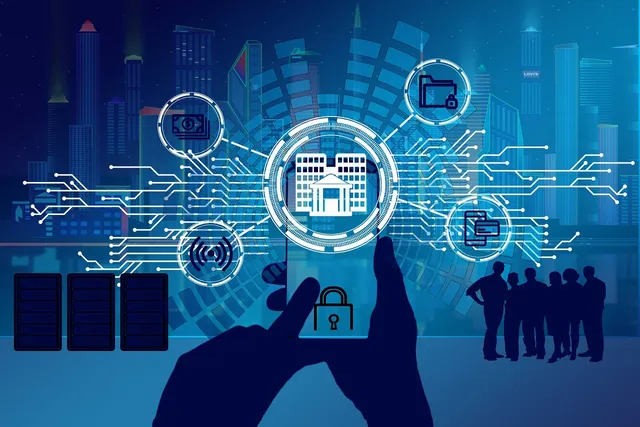The Role Of Decentralized Identity In Digital Voting Systems.
INTRODUCTION
In recent years, the development and implementation of decentralized identity (DID) systems have attracted interest from researchers and development experts. When talking about DID it is about a system in which concerning personal information and digital identity, the individuals can manage everything without the need of third parties or centralized systems. This is especially valuable in the case of voting systems, where lots of considerations have to be given towards privacy, trust and security. Traditionally, voters have had to rely on centralized organizations for identity verification and voting registration in voting systems. However, with the advent of blockchain technology and decentralized identity, voting has the ability to be more secure, transparent and fair.
Digital voting systems are viewed as effective solutions to accountability issues during elections and as tools to ease the processes of election, widen participation, or curb elevated voting misconduct. However, the principles of digital voting systems that are in existence today, still depend on hierarchical authorities which supervise the registration and verification of voters.
This centralization of the systems brings in issues like identity fraud, exploitation, and appeared alteration which soon hampers the integrity of elections. It is expected, therefore, that incorporating such a system would help create a more secure environment for online voting as well help to protect the privacy of voters and increase democratic transparency.
ENHANCED SECURITY AND PRIVACY IN VOTING:
Decentralized identity systems play an important role in enhancing security and privacy in digital voting systems. Normally in centralized voting models, personal information such as voter registration data is stored in central databases, this makes it vulnerable to hacking and data breaches. However, a DID-based system help to prevent these risks by decentralizing the storage and management of voter data.
In a decentralized identity framework, the voters have full control over their personal information, and this information is not stored in a single, vulnerable location but rather its distributed across the network. As a result it will be very difficult for hackers to compromise voter data because there is no central point of failure.
Additionally, voters can verify their identities through cryptographic signatures without revealing personal information, ensuring both privacy and security during elections. This also means that identity fraud is prevented, and it will become impossible for malicious actors to steal votes. There by providing a higher level of trust and integrity in the voting process.
TRUSTLESS AND TRANSPARENT VOTING PROCESSES:
Another key benefits of using decentralized identity in digital voting systems is the creation of trustless and transparent voting processes. The centralized voting systems rely heavily on intermediaries such as election authorities and government bodies to validate votes and ensure election integrity, but this model increase the risk corruption and manipulation.
However, with decentralized identity, voting systems become trustless, as they do not require intermediaries to validate voter identity or manage the election. They are combined with blockchain technology in order to enable a peer-to-peer voting process where trust is established through cryptographic proofs and consensus mechanisms.
Voters can now securely cast their votes, with all transactions being recorded on an immutable blockchain ledger. This ensures that the election process is transparent and verifiable by anyone, eliminating the need for blind trust in centralized authorities.This transparency help to enhance a voter’s confidence in the election outcome and reduces concerns about election tampering or vote miscounting.
REDUCING VOTER DISENFRANCHISEMENT:
Decentralized identity also play an important role in reducing voter disenfranchisement, especially for marginalized or underserved populations. In the traditional voting system, some people may have difficulties voting due to lack of access to government-issued identification, complex registration processes, or geographic challenges.
However, DID systems offer a solution to these problems by allowing individuals to create and manage their own digital identities without relying on government authorities. Individuals can now register for voting using their DID, which can be created from a variety of verifiable credentials, such as educational records, work history, or community attestations.
This opens up voting opportunities to people who may not have traditional forms of identification but are still eligible to vote. Moreover, the digital nature of the system allows for remote voting, making it more accessible for individuals in remote areas or those with limited mobility. This there by helps to create a more inclusive and equitable election process, leading to a more representative democracy and better governance outcomes.
IMPROVING ELECTION EFFICIENCY AND REDUCING COSTS:
The use of decentralized identity in digital voting systems also helps to improve the efficiency of elections and reduce its costs. In the traditional election system substantial resources are required for voter registration, identity verification, vote collection, and counting. Additionally, to prevent fraud, an extensive security measures is also required. All these requirements drives up its costs.
However, the decentralized identity simplifies these processes by automating voter registration, verification, and vote tallying through blockchain and cryptographic technologies, so once a voter has created a decentralized identity, they can use it across multiple elections without needing to re-register or provide additional verification. This helps to reduce the administrative burden on election officials and lowers the cost of maintaining voter databases.
Moreover, using digital voting systems that use decentralized identity helps to achieve a faster vote counting and result reporting. Since votes are recorded on an immutable ledger, election results can be verified easily, there by reducing the time and costs associated with the traditional voting system.
CONCLUSION
Decentralized identity has played a crucial role in transforming the digital voting system by enhancing security, improving transparency, and making elections more inclusive. This helps to create a more trustworthy and efficient election process, thereby strengthening the foundations of democracy.


.webp)
https://x.com/Memephiz148421/status/1835394318489510238
Upvoted! Thank you for supporting witness @jswit.
Note:- ✅
KINDLY JOIN PUSSFI DISCORD SERVER FOR MORE DETAILS!
Regards,
@jueco